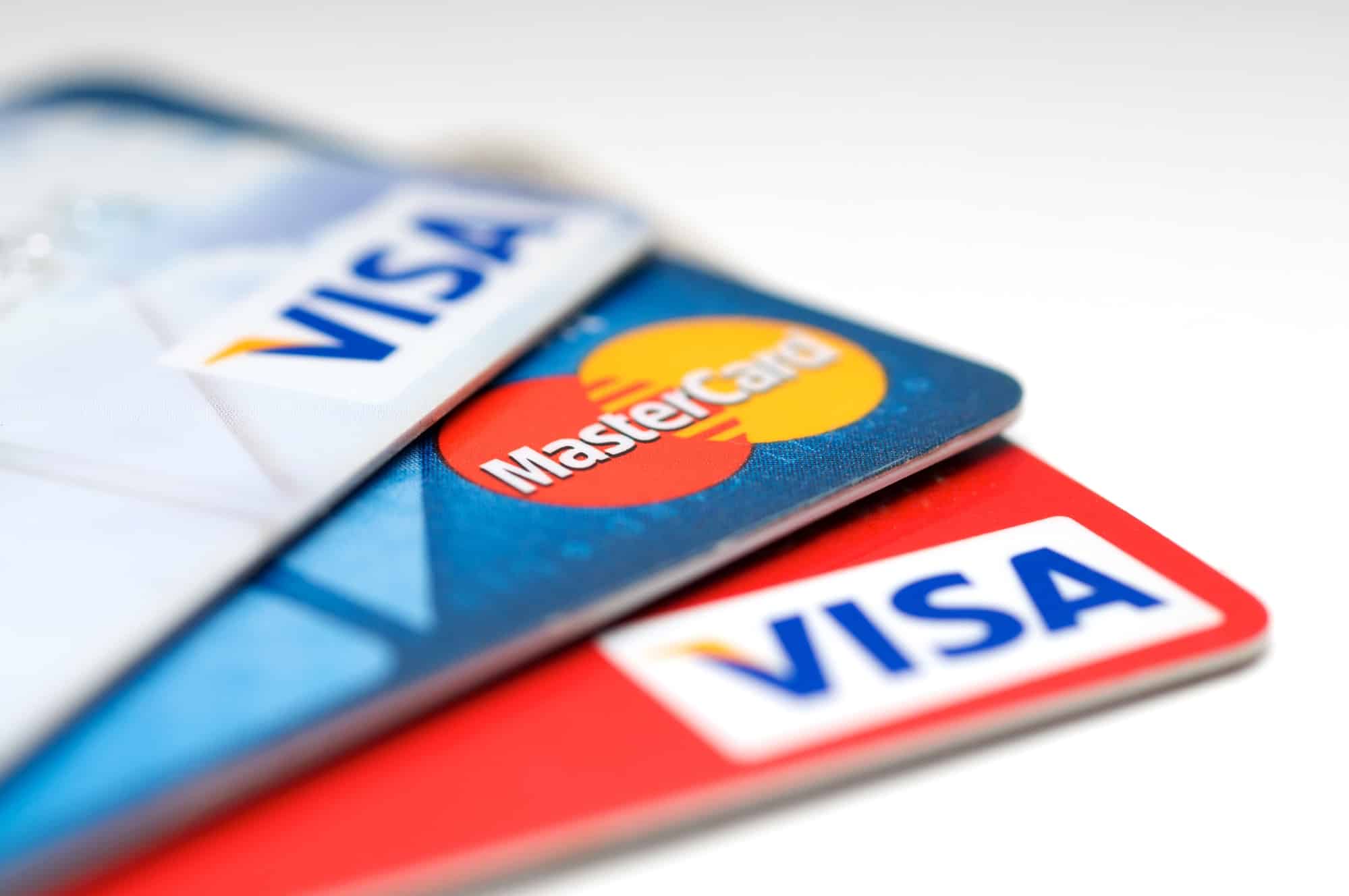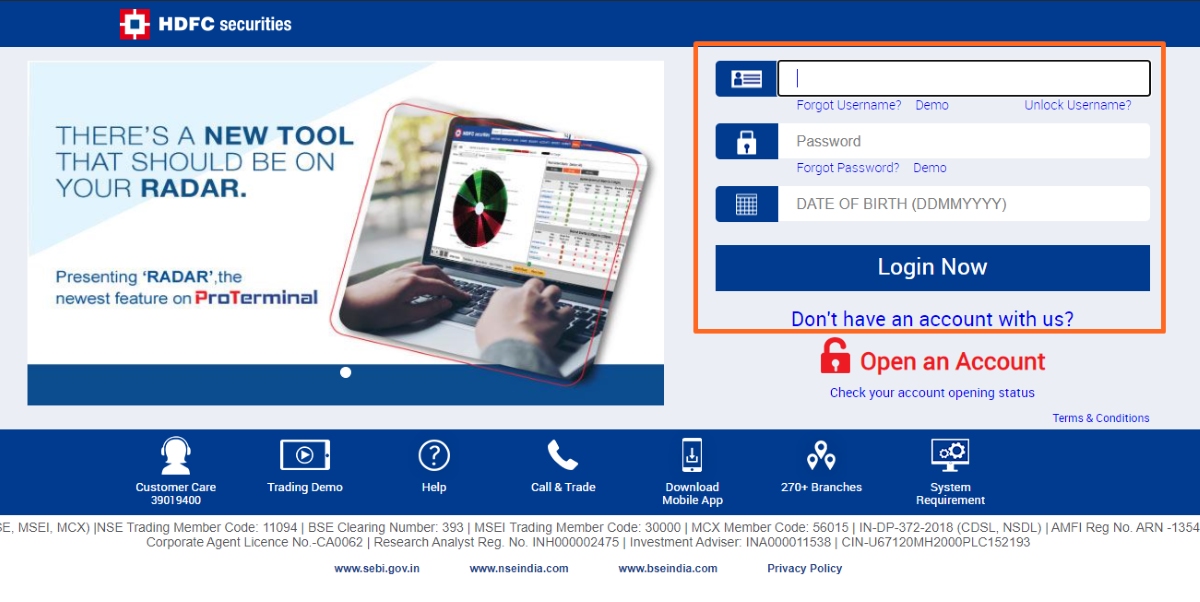Home>Finance>If Your Identity Is Stolen Who Becomes Responsible For Restoring Your Credit To Good Standing?


Finance
If Your Identity Is Stolen Who Becomes Responsible For Restoring Your Credit To Good Standing?
Modified: March 1, 2024
Discover who takes the responsibility for restoring your credit to good standing when your identity is stolen. Enhance your knowledge about finance and safeguard your financial well-being.
(Many of the links in this article redirect to a specific reviewed product. Your purchase of these products through affiliate links helps to generate commission for LiveWell, at no extra cost. Learn more)
Table of Contents
Introduction
Identity theft is a serious and increasingly common crime that can have devastating consequences for individuals and their finances. It occurs when someone steals another person’s personal information, such as their Social Security number, credit card details, or bank account information, with the intent to commit fraud or other illicit activities. The impact of identity theft can be far-reaching, from unauthorized charges on credit cards to damaged credit scores and even lawsuits.
In the event that your identity is stolen, it is crucial to take immediate action to minimize the damage and restore your credit to good standing. One of the key questions that arises when facing this situation is: who becomes responsible for restoring your credit?
In this article, we will delve into the world of identity theft and examine the responsibilities of victims in restoring their credit. We will explore the steps one should take to report identity theft, dispute unauthorized charges, and work with financial institutions and credit bureaus to rectify the damage done. Additionally, we will touch upon legal protections and rights available to identity theft victims.
By gaining a clear understanding of the processes involved in resolving identity theft and restoring your credit, you will be better equipped to navigate this challenging situation and regain control over your financial life.
Understanding Identity Theft
Identity theft occurs when someone gains unauthorized access to your personal information and uses it for fraudulent purposes. This can include stealing your Social Security number, credit card details, bank account information, or even your medical records. With this stolen information, the thief can open new credit accounts, make unauthorized purchases, obtain loans, or commit other financial crimes in your name.
Identity thieves employ various methods to obtain personal information, including phishing scams, hacking, data breaches, and even physical theft of wallets or documents. They often target individuals who are not vigilant about protecting their personal information or who fall victim to deceptive tactics.
The consequences of identity theft can be severe, both financially and emotionally. Not only can it result in financial loss, but it can also lead to damaged credit scores, difficulty obtaining loans or credit, and even legal issues if the thief commits a crime using your identity.
It is important to recognize the warning signs of identity theft, such as unauthorized charges on your credit card statements, unfamiliar accounts appearing on your credit report, or receiving calls from debt collectors for debts you don’t owe. Being proactive and monitoring your financial accounts and credit reports regularly can help identify suspicious activity early.
By understanding the nature of identity theft and its potential consequences, you can take the necessary precautions to protect your personal information and minimize the risk of falling victim to this crime. However, if despite your best efforts, your identity is stolen, it is essential to know the steps to take in order to recover and restore your credit to good standing.
Responsibilities of Identity Theft Victims
As an identity theft victim, it is important to take on certain responsibilities to mitigate the damage caused by the theft and restore your credit to good standing. While the responsibility for the theft lies with the criminal, the burden of proof and the process of rectifying the situation often falls on the victim.
One of the first and most crucial responsibilities is to report the identity theft to the appropriate authorities. This includes filing a report with your local police department and reporting the incident to the Federal Trade Commission (FTC) through their website or their toll-free hotline. By reporting the theft, you create an official record that can aid in clearing fraudulent charges and restoring your credit.
It is also your responsibility to contact your financial institutions, such as your bank and credit card companies, to inform them of the identity theft. They can help you close compromised accounts, open new ones, and monitor any suspicious activity. Time is of the essence when reporting the theft to financial institutions, as delays could result in additional unauthorized charges.
Additionally, you should contact the credit bureaus – Equifax, Experian, and TransUnion – and request a fraud alert be placed on your credit report. This alert notifies potential creditors that your identity may have been compromised, prompting them to take extra precautions when evaluating credit applications.
As an identity theft victim, it is also your responsibility to keep detailed records of all communication related to the theft, including dates, times, names of individuals spoken to, and copies of any relevant documents. These records can be invaluable when dealing with creditors, credit bureaus, and law enforcement.
It is important to note that identity theft can have emotional and psychological effects on victims. While not a legal responsibility, it is essential to prioritize self-care and seek support from friends, family, or professionals who can help you navigate the challenges and emotional toll of the situation.
By taking on these responsibilities, you can play an active role in rectifying the situation and restoring your credit. However, it is important to remember that you are not alone in this process. There are resources available to assist you, and seeking professional guidance can help streamline the recovery process and alleviate some of the burdens associated with identity theft.
Reporting Identity Theft
Reporting identity theft promptly is crucial to minimize the damage and initiate the process of restoring your credit. There are several steps you should take to report the theft and provide the necessary evidence to support your case:
- Contact the Police: Begin by filing a police report with your local law enforcement agency. Provide them with all the relevant information, including details of the fraudulent activities and any evidence you have. The police report serves as an official record of the crime and can aid in future investigations.
- Report to the Federal Trade Commission (FTC): Submit a complaint to the FTC through their website or by calling their toll-free hotline. The FTC provides guidance on how to navigate the aftermath of identity theft and offers a recovery plan tailored to your specific situation.
- Notify Your Financial Institutions: Contact your bank, credit card companies, and other financial institutions affected by the identity theft. Inform them of the situation and follow their instructions on closing compromised accounts, opening new ones, and disputing fraudulent charges.
- Contact the Credit Bureaus: Get in touch with each of the three major credit bureaus – Equifax, Experian, and TransUnion. Request a fraud alert be placed on your credit file to notify potential creditors to verify your identity before granting credit. Consider freezing your credit to prevent any new accounts from being opened without your knowledge.
- File an Identity Theft Affidavit: Fill out an Identity Theft Affidavit, which is a formal statement declaring that you are a victim of identity theft. This document can be obtained from the FTC or your local law enforcement agency, and it provides supporting evidence for your case when communicating with creditors and financial institutions.
- Keep Detailed Records: Maintain a detailed record of all your communications, including dates, times, and names of individuals you speak with. Keep copies of any correspondence, documents, or proofs related to the identity theft. These records will be essential when disputing fraudulent charges and rectifying your credit.
By following these steps and reporting the identity theft to the appropriate authorities and institutions, you establish an official record of the crime and begin the process of reclaiming your identity and restoring your credit. It is important to remain vigilant throughout the recovery process and stay in regular contact with the relevant parties to ensure that all necessary actions are taken to resolve the situation.
Restoring Your Credit
Restoring your credit after falling victim to identity theft can be a time-consuming and challenging process, but it is not impossible. Here are some essential steps to take in order to restore your credit:
- Review Your Credit Reports: Obtain copies of your credit reports from each of the three major credit bureaus – Equifax, Experian, and TransUnion. Carefully review them to identify any fraudulent accounts or inaccurate information resulting from the identity theft. Report these errors to the credit bureaus immediately and follow their procedures for disputing the information.
- Dispute Unauthorized Charges: Contact the creditors associated with the fraudulent accounts and dispute the charges. Provide them with the necessary documentation, such as your identity theft affidavit and any evidence proving that you are not responsible for the charges. Stay in communication with the creditors and follow up until the matter is resolved.
- Place a Security Freeze: Consider placing a security freeze on your credit files, which prevents new accounts from being opened under your name without your explicit permission. This added layer of protection can minimize the risk of further identity theft while you work on restoring your credit.
- Monitor Your Accounts: Regularly monitor your existing financial accounts for any suspicious activity. Review your bank statements, credit card statements, and other financial records closely to identify unauthorized transactions. Promptly report any suspicious activity to the respective financial institution.
- Establish Good Financial Habits: As you resolve the issues caused by identity theft, it is essential to establish and maintain good financial habits. Pay your bills on time, keep credit card balances low, and avoid taking on unnecessary debt. These positive financial behaviors will help rebuild your credit history and improve your credit score over time.
- Consider Seeking Professional Help: If you find the process overwhelming or you are not making progress on your own, consider seeking assistance from a credit counseling agency. These organizations specialize in navigating credit-related issues and can provide guidance on restoring your credit and managing your finances.
Restoring your credit after identity theft requires patience, persistence, and proactive efforts to address the fraudulent accounts and inaccurate information. Remember to keep records of all your communications and to follow up regularly with the credit bureaus, creditors, and financial institutions involved. The process may take time, but with determination and the proper steps, you can ultimately regain control over your credit and financial well-being.
Disputing Unauthorized Charges
One of the crucial steps in restoring your credit after identity theft is disputing any unauthorized charges that have appeared on your accounts. Here’s what you need to do:
- Document the Fraudulent Charges: Gather all the evidence related to the unauthorized charges, including account statements, receipts, and any other supporting documents. Make sure to note the dates, amounts, and descriptions of the fraudulent transactions.
- Contact the Creditor: Reach out to the creditor associated with the unauthorized charges as soon as possible. It could be a credit card company, a bank, or any other financial institution. Explain the situation and provide them with the necessary details and evidence to support your claim.
- File a Dispute: Follow the creditor’s specific instructions for disputing the charges. This often involves completing a dispute form and submitting it along with the supporting documents. Be sure to keep copies of all your correspondence with the creditor.
- Request a Fraud Alert or Account Closure: If the unauthorized charges are from a credit card, request that a fraud alert be placed on your account. This helps prevent further fraudulent charges from occurring. In some cases, it may be necessary to close the account altogether and open a new one to prevent continued unauthorized activity.
- Follow Up Regularly: Stay in contact with the creditor and follow up on your dispute regularly. Document each interaction, including the date, time, and the name of the individual you speak with. Be persistent in pursuing the resolution of your dispute.
- Inform the Credit Bureaus: Notify the credit bureaus about the disputed charges and provide them with copies of the documentation. The credit bureaus will investigate the disputed information and remove it from your credit report if found to be fraudulent. This step helps in restoring your credit history and score.
It is important to act swiftly when disputing unauthorized charges to prevent further damage to your credit. Keep in mind that different creditors may have varying procedures for handling disputes, so be prepared to provide the necessary documents and follow their specific instructions.
If you encounter difficulties or the dispute is not resolved to your satisfaction, consider consulting with a consumer protection attorney or a credit counseling agency for further assistance. These professionals can provide guidance and support in navigating the dispute resolution process.
By diligently disputing unauthorized charges and providing the required evidence, you increase the chances of successfully removing the fraudulent activity from your accounts and protecting your credit standing.
Dealing with Financial Institutions
When your identity is stolen, dealing with your financial institutions becomes a crucial part of restoring your credit and minimizing the impact of the theft. Here are some important steps to take when communicating with financial institutions:
- Contact the Institution: As soon as you discover the identity theft, reach out to the affected financial institution. This could include your bank, credit card companies, loan providers, or any other institution where fraudulent activity has taken place.
- Report the Identity Theft: Inform the financial institution of the identity theft incident. Provide them with all relevant details, such as the date and time of the unauthorized transactions, the fraudulent accounts or charges, and any supporting documentation you have collected.
- Close Compromised Accounts: If your bank accounts or credit cards have been compromised, request immediate closure of those accounts. The financial institution will guide you through the necessary procedures to close the accounts and prevent further fraudulent activity from occurring.
- Open New Accounts: After closing compromised accounts, open new ones to replace them. Be sure to choose strong passwords and consider opting for additional security measures, such as two-factor authentication, to protect your new accounts.
- Monitor Account Activity: Regularly monitor your new and existing accounts for any suspicious activity. Review your bank statements and credit card statements carefully for unauthorized charges. Report any unusual transactions to the financial institution promptly.
- Work with Fraud Departments: Financial institutions often have dedicated fraud departments to handle identity theft cases. Cooperate closely with these departments, providing any requested documentation or information. They will investigate the fraudulent activity and work to resolve the issues.
- Follow Up Regularly: Stay in contact with the financial institutions throughout the process of resolving the identity theft. Keep detailed records of all communications, including names, dates, and a summary of the discussions. Regularly follow up to ensure that the necessary actions are being taken.
Remember, financial institutions have a vested interest in resolving identity theft cases and protecting their customers. They are equipped to handle these situations and can guide you through the necessary steps to restore your credit and regain control of your accounts.
If you encounter difficulties or feel that the financial institution is not adequately addressing the identity theft, consider reaching out to regulatory agencies such as the Consumer Financial Protection Bureau (CFPB) or seeking legal assistance to ensure your rights are protected.
By promptly and effectively dealing with your financial institutions, you can take meaningful steps towards resolving the identity theft and restoring your credit to good standing.
Working with Credit Bureaus
When restoring your credit after identity theft, working with the credit bureaus is crucial. These bureaus, namely Equifax, Experian, and TransUnion, compile and maintain the information in your credit report. Here’s how you can effectively work with them:
- Obtain Your Credit Reports: Request a copy of your credit report from each of the three credit bureaus. You are entitled to one free copy per year from each bureau through AnnualCreditReport.com. Review the reports carefully to identify any fraudulent accounts or inaccurate information resulting from the identity theft.
- Dispute Errors and Fraudulent Accounts: If you find fraudulent accounts or inaccurate information on your credit reports, file a dispute with the respective credit bureaus. Each bureau has an online dispute process, or you can send a written dispute by mail. Provide as much evidence as possible to support your claim, such as police reports, identity theft affidavits, and any other relevant documentation.
- Request Fraud Alerts: Ask the credit bureaus to place a fraud alert on your credit file. This alert notifies potential creditors to take extra precautions in verifying your identity before granting credit. Once you request a fraud alert with one bureau, they are required to inform the other two bureaus.
- Consider a Credit Freeze: If you suspect ongoing identity theft or want an added layer of protection, you can request a credit freeze. This prevents new creditors from accessing your credit report altogether, making it more difficult for identity thieves to open new accounts in your name. Keep in mind that lifting the credit freeze when you need to apply for credit may involve additional steps and time.
- Follow Up on Disputes: Stay in communication with the credit bureaus regarding your disputes. Keep records of all correspondence, including dates and details of interactions. Follow up regularly to ensure that the investigation is progressing and that any inaccurate or fraudulent information is properly removed from your credit reports.
- Review Updated Credit Reports: After the disputes are resolved, request updated copies of your credit reports from each bureau. Review these reports to ensure that the fraudulent accounts or inaccurate information have been removed. Verify that your credit information is accurate and reflects your current financial status.
Working with the credit bureaus can be a time-consuming process, but it is essential for restoring your credit after identity theft. By remaining vigilant and providing the necessary evidence to support your claims, you can ensure that your credit report accurately reflects your financial history.
If you encounter challenges or feel that the credit bureaus are not adequately addressing your concerns, you can file a complaint with the Consumer Financial Protection Bureau (CFPB) for further assistance in resolving the matter.
Remember, regularly monitoring your credit reports and promptly addressing any suspicious or unauthorized activity can help you identify and resolve identity theft issues as early as possible.
Legal Protections and Rights
As an identity theft victim, understanding your legal protections and rights is crucial in the process of restoring your credit and holding the responsible parties accountable. Here are some important legal aspects to consider:
- Fair Credit Reporting Act (FCRA): The FCRA ensures that credit reporting agencies maintain accurate information in your credit reports and protects your right to dispute any inaccuracies. You have the right to receive a free copy of your credit report once a year from each of the major credit bureaus and to dispute any erroneous information.
- Fair and Accurate Credit Transactions Act (FACTA): FACTA provides additional provisions to protect consumers against identity theft. It entitles you to one free credit report per year, requires businesses to truncate credit card numbers on receipts, and mandates the safe disposal of consumer information.
- Identity Theft and Assumption Deterrence Act (ITADA): ITADA was established to combat identity theft at the federal level. It makes identity theft a federal crime and provides the framework for law enforcement to investigate and prosecute identity thieves. It also grants you certain rights relating to your personal information and the correction of false information in your credit files.
- State Laws: Many states have enacted laws that specifically address identity theft, providing additional protections for victims. These laws may cover issues such as security freezes, identity theft passport programs, and the rights of victims to recover damages resulting from the theft.
- Consumer Protection Laws: Various consumer protection laws, such as the Consumer Financial Protection Act (CFPA) and the Fair Debt Collection Practices Act (FDCPA), safeguard your rights as a consumer. These laws prohibit unfair practices by lenders, debt collectors, and other financial service providers.
- Legal Remedies: If you have suffered financial losses or damages as a result of identity theft, you may have a legal right to seek remedies. Consult with a consumer protection attorney who specializes in identity theft cases to understand your legal options, including pursuing compensation for the harm caused.
It is important to familiarize yourself with the specific laws in your jurisdiction and understand how they protect your rights as an identity theft victim. Additionally, keep records of all interactions, document any losses incurred, and report the theft to law enforcement to aid in potential legal proceedings.
Seeking legal advice and guidance can help you navigate the complexities of these laws and ensure that you receive the necessary support to restore your credit and hold the responsible parties accountable for the damages caused by the identity theft.
Conclusion
Dealing with identity theft can be a daunting and stressful experience, but it is possible to restore your credit to good standing with determination, persistence, and knowledge of the steps to take. By understanding your responsibilities as an identity theft victim, such as reporting the theft promptly and working with the appropriate authorities, you enhance your chances of resolving the situation successfully.
Reporting the identity theft to the police, the Federal Trade Commission (FTC), and your financial institutions is crucial in establishing an official record and initiating the necessary actions to rectify the damage. Working with credit bureaus and disputing unauthorized charges helps in removing inaccurate or fraudulent information from your credit reports. Understanding your legal protections and rights empowers you to assert them and seek legal remedies if needed.
Throughout the process, it is important to maintain good financial habits, monitor your accounts regularly, and keep detailed records of all communications and supporting documents. Staying proactive and following up diligently with the relevant parties involved can help expedite the resolution of the identity theft and restore your credit more effectively.
Remember, you don’t have to face this challenge alone. There are resources available to support you, including credit counseling agencies, consumer protection attorneys, and regulatory agencies. Seeking professional assistance can provide additional guidance and expertise, making the recovery process smoother and less overwhelming.
By taking the necessary steps, understanding your rights, and staying vigilant, you can navigate the aftermath of identity theft and restore your credit to good standing. While it may take time and effort, the knowledge gained and the protection measures implemented can help safeguard your financial future.














